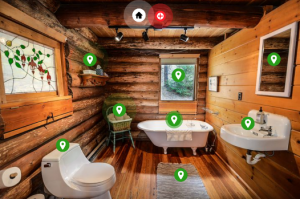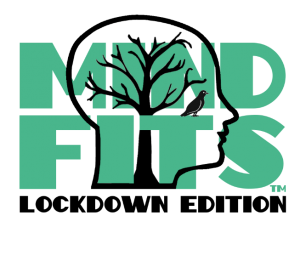When teaching, hobbies and other group activities suddenly end or are turned online, it’s difficult for many of us to keep up the motivation. The exceptional lockdown experience of spring 2020 gave also CONNEXT project an incentive to develop single-player games, which can be used during a lockdown situation to support the wellbeing of youth.
In CONNEXT, we’ve learned that games are at their best when people come together physically and that increases collaboration and flock intelligence. In 2020 the emergence of COVID-19 questioned a very valuable element in games: playing, sharing, having fun and learning face-to-face with others in a group. Because of the COVID-19 situation, physical forms of reunion had to be kept to a minimum, which forced us to reconsider the possibilities of gamification and explore game ideas that can be carried out independently.
Over the years gameWise in Belgium has been developing a game called Mindfits™. As the lockdown took place, the game was opened for free access and soon spread to over to 1700 youngsters mostly in Belgium. Among them, 500 have given feedback on their experience, which seems to have been predominantly very positive. As the game has been translated to English as well, it can have a much wider audience.
Mindfits™ Lockdown Edition: a serious game about mental wellbeing for youngsters.
Mindfits ™ Lockdown Edition can be played for free (single player, webgame on Android, iPhone, Windows, MacOS). |
 In the meanwhile, CONNEXT Finland shared some of it’s game challenges online in order to inspire teachers, youth workers and other professionals working with youngsters to use gamification as a tool. For example Metropolia University of Applied Sciences compiled a game Keep well #isolation, which encourages participants to look around their own home and to identify tools, which can be used to support wellbeing. Another game, Ukko ylijumalan luontopeli (Nature Game of Supreme God Ukko), created by Helsinki Vocational College (Stadin ammatti- ja aikuisopisto) gave inspiration to start exploring outdoors. Practice+++ developed by YMCA Helsinki, encouraged youngsters to continue their volleyball exercises and physical activities on their own, despite the isolation.
In the meanwhile, CONNEXT Finland shared some of it’s game challenges online in order to inspire teachers, youth workers and other professionals working with youngsters to use gamification as a tool. For example Metropolia University of Applied Sciences compiled a game Keep well #isolation, which encourages participants to look around their own home and to identify tools, which can be used to support wellbeing. Another game, Ukko ylijumalan luontopeli (Nature Game of Supreme God Ukko), created by Helsinki Vocational College (Stadin ammatti- ja aikuisopisto) gave inspiration to start exploring outdoors. Practice+++ developed by YMCA Helsinki, encouraged youngsters to continue their volleyball exercises and physical activities on their own, despite the isolation.
Here are some examples of game challenges from these isolation games:
- What do you see when you watch out of your window? Write down 5 words that the view reminds you of. Make a short poem, where you use these words in a random order.
- In the times of COVID-19 washing hands is essential. What else can you do for others from a distance? Send a short, encouraging message to your friend or a relative.
- Watch this film prepared by your coach. Make a short film of yourself doing the same exercise and download it on the game platform. Do your best, but don’t worry if you cannot be as fast or do as many movements as him – it’s really difficult to beat the coach!
- I am Supreme God Ukko. I want you to build a high tower to honour me! Go to the nature, look for stones of different sizes, try to balance them on each other and send me a picture of your highest tower.
The interest towards gamification among teachers and counsellors has clearly increased alongside with the lockdown and other social distancing measures. At best, games can serve as a great way to draw the attention of, activate and even engage youngsters online as part of teaching or other activites. Yet, in CONNEXT we can hardly wait to the day when we can play games together again!
Text: Mai Salmenkangas, Metropolia University of Applied Sciences and Bram Allegart, gameWise
Pictures: Logo of Mindfits and screeshot of Keep well #isolation game on ThingLink (original picture: Pixabay)

 In this game you’re stuck in your studenthouse during a lockdown. Get to know your housemates and learn how you can deal with difficult moments, stress, loneliness, anxiety and other taboos. Try gaining enough connection with all of your housemates to complete the game. This game was realised with the feedback and input of numerous youngsters and experts.
In this game you’re stuck in your studenthouse during a lockdown. Get to know your housemates and learn how you can deal with difficult moments, stress, loneliness, anxiety and other taboos. Try gaining enough connection with all of your housemates to complete the game. This game was realised with the feedback and input of numerous youngsters and experts.